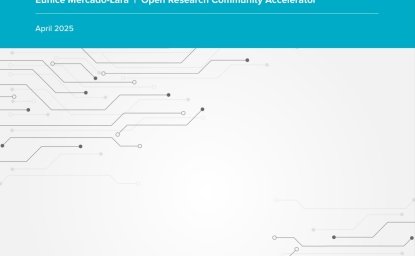The Intelligent and Connected Bio-Labs of the Future: Promise and Peril in the Fourth Industrial Revolution


The Intelligent and Connected Bio-Labs of the Future: Promise and Peril in the Fourth Industrial Revolution... by The Wilson Center on Scribd
A vast array of technologies are rapidly developing and converging to fundamentally change how research is performed, and who is able to perform it. Gene editing, DNA synthesis, artificial intelligence, automation, cloud-computing, and others are all contributing to the growing intelligence and connectivity of laboratories. It is currently possible to perform a growing number of research tasks automatically and remotely with a few clicks of the mouse. And with the barriers of entry to synthetic biology tools like CRISPR decreasing, they will no doubt be subject to automation as well, and may even be coupled with artificial intelligence to optimize the power of genetic engineering. While this may be a boon for the development of novel vaccines and therapeutics by parties that have traditionally not had access to the necessary tools, it also opens the risk of nefarious use to engineer or edit biological agents or toxins. While there have been attempts at governance to limit the avenues by which a bad actor may gain access to the pathogens or tools to create biological weapons, the ever-increasing pace of innovation has left gaps that may be exploited. Fortunately, investment in technologies such as artificial intelligence and sequencing may also function as the best defense against the growing threat of misuse of biological agents.
Authors

Formerly European Commission, Directorate-General for Research and Technological Development, Directorate on Science, Economy and Society
Ph.D. student in Biological and Biomedical Sciences at Harvard University

Science and Technology Innovation Program
The Science and Technology Innovation Program (STIP) serves as the bridge between technologists, policymakers, industry, and global stakeholders. Read more

Explore More
Browse Insights & Analysis
360° View of How Southeast Asia Can Attract More FDI in Chips and AI


